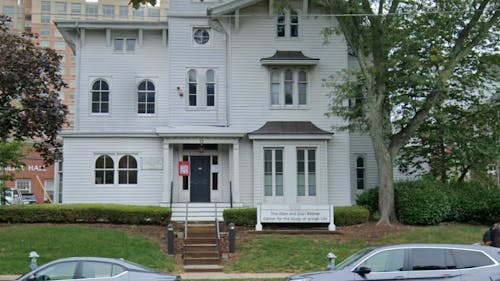Bildner Center receives grant to create program about intersection of Jewish, Black American history

The New Jersey Council for the Humanities (NJCH) recently awarded a $10,173 action grant to the Allen and Joan Bildner Center for the Study of Jewish Life, located on the College Avenue campus, to examine the complex solidarity and friction within Black-Jewish relations.
Nancy Sinkoff, a professor in the Departments of Jewish Studies and History and academic director of the Bildner Center, said that although the center collaborates with the University's academic departments, its primary aim is to engage wider audiences with Jewish scholarship.
"The Bildner Center is very much part of the University's larger mission of creating a beloved community of diversity, inclusion and equity. The Jewish voice … must be part of that initiative," she said.
Since accepting the role of academic director, Sinkoff said she oversees and creates public programming that is at the core of the center's public humanities mission.
Although the center has received other NJCH grants in the past, this is the first action grant received under Sinkoff's leadership, she said.
"This particular grant was a way of responding to the anti-Black racism of Charlottesville and of George Floyd," she said. "The attack on Charlottesville combined anti-Black racism and antisemitism … It challenges us to think about why certain groups, when they champion certain kinds of white, Christian Americans, why they then isolate or target Black Americans and Jewish Americans, in particular."
Sinkoff said she was inspired by both minority groups' collective historical struggle to fit into the ideals of a narrow Christian white society and wanted to delve deeper into the shared histories of Jewish Americans and Black Americans, as well as the misconceptions about their relationship during the civil rights era.
In a program titled "Black Americans, Jewish Americans: Historical Intersections, Collisions and Passings," the center wanted to illuminate both these minorities' unity and disunity as they assimilated into American society, Sinkoff said.
"There was what people think were the 'good old days,' when Black Americans and Jewish Americans seemed to be quote-unquote on the same page in terms of civil rights,” Sinkoff said. "White Jewish Americans were very active in civil rights and felt strongly that their engagement should be recognized. Black Americans may have been grateful for Jewish involvement but also felt that their struggle was very different."
Sinkoff said she was particularly fascinated with the concept of "passing" during the creation of the program, which refers to efforts undertaken by Jewish Americans and Black Americans to mold themselves into the archetypal image of white Christians.
For lighter-skinned Black Americans, the pressure of skin color remains prevalent, whereas the pressure of conforming to religion exists for Jewish Americans of European descent, she said.
After brainstorming ideas for "Black Americans, Jewish Americans: Historical Intersections, Collisions and Passings," the center decided to host screenings of two important films: "The Gentleman's Agreement" and "Passing," Sinkoff said.
The film discussion, which is open to the public, will take place in the Douglass Student Center on March 4.
During the event, Rachel Gordan, a professor of the Bud Shorstein Center for Jewish Studies at the University of Florida, and Donavan Ramon, an assistant professor of the English Department at Southern Illinois University Edwardsville, will analyze the respective films with film critic Gene Seymour.
The second part of the program is an online book club hosted by Ramon, where he will dissect the novels "The Human Stain" by Philip Roth and "Passing" by Nella Larsen. The Rutgers libraries, the New Brunswick Free Public Library and the New Brunswick African American Heritage Committee will work with the Bildner Center to advertise the book club on campus.
Sinkoff said she hopes the center can empower its audiences with thoughtful insights and deliberate discussions of the humanities as individuals navigate great vulnerabilities in society.
"I think the goal of (the) University and the goal of a public-facing unit like the Bildner Center is to ask people to take a deep breath and think more in complex ways … So, that's the programming we try to do," she said.



